Black Gate Interviews C.S.E. Cooney: From Metaphor To Manticore
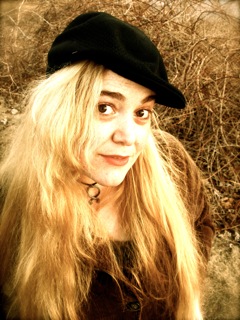 Writer C.S.E. Cooney has published two stories in the mighty trove of Black Gate‘s online fiction catalog, “Life On the Sun,” and its prequel, “Godmother Lizard.” For the following interview, she and I met in the cavernous vaults of Black Gate‘s Indiana compound, where we lounged on Ottoman divans surrounded by steampunk tapestries and several thousand of John O’Neill’s second favorite sci-fi paperbacks. The results, transcribed by a Silicon Valley drone powered entirely by herbal tea, are as follows:
Writer C.S.E. Cooney has published two stories in the mighty trove of Black Gate‘s online fiction catalog, “Life On the Sun,” and its prequel, “Godmother Lizard.” For the following interview, she and I met in the cavernous vaults of Black Gate‘s Indiana compound, where we lounged on Ottoman divans surrounded by steampunk tapestries and several thousand of John O’Neill’s second favorite sci-fi paperbacks. The results, transcribed by a Silicon Valley drone powered entirely by herbal tea, are as follows:
What do you write? Or, if it’s easier, what do you not write?
Well, I’ve never written a tech manual for aeronautics and robotics. Man, but if I did, then I could write all sorts of cool sci fi with my awesome SCIENCE KNOW-HOW!
I generally say I write Fantasy when people ask. With the understanding that I think “Fantasy” is a great umbrella term that tucks, um, ALL OF FICTION under its shadowy wings. But mostly I mean I write Secondary World Fantasy. With a bit of urbanish fantasy thrown in. And maybe a wee slice of sci fi when I’m feeling daring. And an even weesomer slice of horror, usually in the autumn. Oh, and a dollop of the Weird, when I’m in my Gabriel Garcia Marquez mood. Oh, and that one time I tried to write a Steampunk story but I’m still not entirely sure of the outcome…
Every story I write seems to require a whole different set of tools than the last story. One is constantly reinventing one’s toolbox. Thankfully, the good old standbys like “assonance” and “simile” don’t really change. Only get better. Or subtler. If subtle is better. I don’t do subtle very well, so I naturally think it IS better, mostly because it’s this mysterious thing.
Subtlety. I’m a big fan of it.
What’s the best thing you’ve written –– a sentence, a scene, a sequence, a complete work –– and why do you think it sings for you the way it does? (Also: where can readers find it?)
Ah, jeez. Okay, well at the time I wrote it, “Martyr’s Gem” was the best thing I’d written to date — as far as fiction goes. It’s a novella. Before that, it was my novella The Big Bah-Ha. I’ve written things that have pleased me, before, since, in-between. But I felt those two (again, at the time) represented breakthroughs. I did something I’d never done before, or never seen done before. I impressed myself, I guess. Mostly I write things that make me grin, or leap up from my chair pumping my fists in the air, or lean back and applaud myself for a particular ZINGER, you know? But nothing spectacular or special. Nothing that anyone else couldn’t do better.
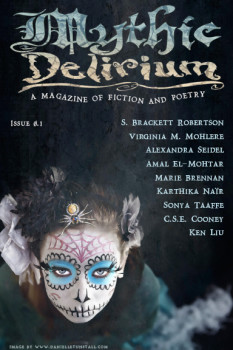 But usually the good stuff only comes through in a line here and there. Some piece of hard won wisdom or warmth that I knew to be true but never articulated until right that moment. Something totally gross. Or snarky. Or unbearably lovely.
But usually the good stuff only comes through in a line here and there. Some piece of hard won wisdom or warmth that I knew to be true but never articulated until right that moment. Something totally gross. Or snarky. Or unbearably lovely.
When I wrote my poem “The Sea King’s Second Bride” I recognized with immediate sorrow that I’d probably never come close to writing anything as good again. I’ve written some popping performance poetry pieces since then, but though they are very exciting, they are not “Sea King” and never will be “Sea King” and I guess I will just have to be okay with that. And hope for something better in my future. Or just be glad that I wrote it in the first place.
“Martyr’s Gem” was originally published at GigaNotoSaurus, back when Ann Leckie was editor. My buddies Magill Foote and Grant Jeffery made the most AWESOMEST EVER (forgive the enthusiastically bad grammar) TEASER for it, excerpting a section that I often perform at conventions. We wanted it to be a sort of souped-up Reading Rainbow, but it turned into something more like a short animated art film that still boggles my mind every time I watch it. My buddies at the Flock Theatre of New London chimed in for the chorus and drums, and I narrated it.
Both “Martyr’s Gem” and “The Big Bah-Ha” (published at Drollerie Press before it folded) will be reprinted in my first ever story collection (!!!EEEEK!!!) Bone Swans, forthcoming with Mythic Delirium in 2015.
“The Sea King’s Second Bride” is online at Goblin Fruit Magazine, but it’s also in my poetry collection, How to Flirt in Faerieland and Other Wild Rhymes, published by Papaveria Press. If you get the book, you get to see the COOL ARTWORK by Bek Huston, which you don’t get just by reading it online. *cough*
Name three authors or books that absolutely made you SWOON.
WHAT? ONLY THREE??? No. I can’t stop at three. Don’t make me.
Gene Wolfe. (What that splendid man can do with a short story!)
Ysabeau Wilce. (Swoonage. From the first moment, swoonage.)
Stephanie Shaw. (I often start crying before I’m done with the first paragraph of any given story or monologue.)
Lois McMaster Bujold. (Want to be her when I grow up.)
James Enge. (Him too.)
Ellen Kushner. (Everything I read by her makes me want to leap on stage and fight duels while spouting couplets.)
Nicole Kornher-Stace. (Her words are wasps.)
Daniel José Older. (He can make me cramp with laughter, and then start sobbing uncontrollably in the flip of a sentence.)
Patty Templeton. (HOW DOES SHE DO THAT?)
Michael Penkas. (Ruthless efficiency. Never pulls his punches. Weirdly warm and compassionate. Deeply chilling.)
HENNING MANKELL! (HOLY SMOKES, have you read Depths? I mean, I only read it translation, but I can’t even breathe thinking about it.)
Nabokov. (Whose writing my friend told me would leave “a bright scar on the brain,” and it did.)
What will you be for Halloween this year?
You know, I don’t know! The other day I dressed up like a Hobbit to go to a Prancing Pony Party at writer Ken Schneyer‘s house (oh! His cool collection of spec lit stories, The Law and the Heart, recently came out too!!!), and that was great, and very relaxing, because I wasn’t trying to be pretty — just colorful and comfortable. I might dress up like a fortune teller for a theatre gig on the 25th. And there’s a Day of the Dead party on November 1st at a local Mexican food restaurant where I live… But I have a bunch of mixed feelings about painting myself up like a sugar skull and appropriating a holiday I know very little about, so I might just wear something eccentric and eat a taco. Support the local eateries! Plus, guacamole!
What are YOU gonna be for Halloween, Mark?
I got to Venice earlier this year, and brought back a darling little leather fox mask. Most Venetian masks are papier-mâché, but not this, and I got to watch the artisan who makes the masks while he worked. (His radio played old blues music the entire time, an unexpected bonus.) So I doubt I’ll do a whole costume, because nobody ever invites me to the right sort of parties (cue sad Arthur Dent expression), but as a fox, I can be, one day out of the year, adorable.
Which reminds me: what are you writing NOW, and will you write it IN COSTUME?
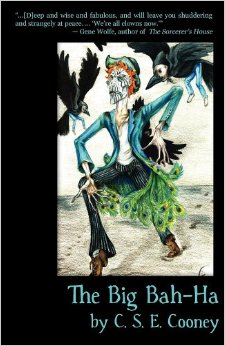 Ah, but this is an EXCELLENT question! I am writing something called “The Two Paupers.” It is Book 2 in a 3-novella series called Dark Breakers. The first book, “The Breaker Queen,” I have recently released on Amazon, with “Two Paupers” to follow as soon as it’s finished. It takes place in a city called Seafall, sort of an alternate Newport, Rhode Island, in a world that’s not our world.
Ah, but this is an EXCELLENT question! I am writing something called “The Two Paupers.” It is Book 2 in a 3-novella series called Dark Breakers. The first book, “The Breaker Queen,” I have recently released on Amazon, with “Two Paupers” to follow as soon as it’s finished. It takes place in a city called Seafall, sort of an alternate Newport, Rhode Island, in a world that’s not our world.
There’s a house in Seafall based on the Vanderbilt’s “Breakers” summer cottage (um, palace), called Breaker House. My own Breaker House is a queer old place, because it is anchored in three worlds. Aithe, the human world. Valwode, the Gentry (fairy) world. And Bana, the Bone Kingdom, where the goblins dwell. (And the house is called, in each world respectively: Day Breakers, Dark Breakers, and Breakers Beyond.)
In “Two Paupers,” I have this really cool, kind of scary Masquerade Ball. And I was feeling the need for some inspiration, so I asked Facebook to come to my ball too. I uploaded a screenshot of the very invitation used in the manuscript. A bunch of my friends posted in my masquerade thread pictures of themselves in costumes that they would wear to the “Gentry Moon Masquerade,” and I plan to go back and name every single one of them in my acknowledgements.
I myself wore a Venetian mask for the occasion. It’s a silver neutral mask, cold as moonlight, very haughty, and one of my favorite pieces of costumery I own.
“The Sea King’s Second Bride” seizes English by the throat. Linguistically, you roam from the poetical (“tintinnabulations”) to the rank and file (“cranky”) with the ease of crashing surf. How intentional is this? Does such language help to keep a big myth modern?
I like jokes. (All my fancy literary allusions are really just jokes.) I love the “tintinnabulations” line, because it’s my Poe joke. In performance of that poem, it always gets a laugh, because it’s paired with “the bells, the bells.” Of course, the only people who would get the joke are people who already like poetry. Or Poe. On the other hand, everyone understands the word “cranky.” We wake up with ourselves every morning, after all.
The bells, bells, bells. Phil Ochs set that one to music. Not his best effort, but Poe would likely have been amused. But wait, I’m interrupting. Back to theater!
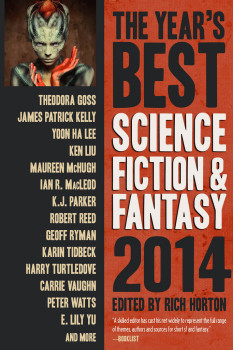 My theatre teacher in high school, Matthew Mazuroski, once called my writing exclusive. Or elitist. One of the two. So as a grown-up writer I try very hard to counteract my natural flair for pretentiousness with a slab of easy to understand “meat and potatoes” prose. And because the juxtaposition of high falutin’ poetry with meatloaf is so incongruous, it’s funny. I guess it’s funny. If you find incongruity funny. Which I do.
My theatre teacher in high school, Matthew Mazuroski, once called my writing exclusive. Or elitist. One of the two. So as a grown-up writer I try very hard to counteract my natural flair for pretentiousness with a slab of easy to understand “meat and potatoes” prose. And because the juxtaposition of high falutin’ poetry with meatloaf is so incongruous, it’s funny. I guess it’s funny. If you find incongruity funny. Which I do.
I wrote “Sea King” because I was so angry. I read the Swedish folk tale “Agneta and the Sea King” because I was in love with John Bauer’s illustration of the same story. I wanted “Agneta and the Sea King” to be my favorite fairy tale ever. And then both the main characters were so impossible! I wanted to pinch them both. The Sea King for being clueless, and Agneta for being so helpless. The two of them for not being what I wanted them to be. And I was thinking about being a grown-up, and about dating, and second (or third, or fourth) marriages, and baggage, and modern sensibilities (YAY FEMINISM) versus, like, folk-and-fairy tale sensibilities.
A friend of mine once called my writing “glorious collisions.” So all of that sort of collided. I can only be glad there wasn’t an excess of road-kill this time.
Glorious collisions, indeed. That’s a very apt term, and well deserved. In reading your work, I often discover word combinations that I would not have expected, but whereas when I find that in most writers, I balk (or blink, or throw up), with you, I nearly always react with delight, a sort of interior hand-clap. But why fantasy? Why not write instead about divorce, race relations, ISIS, or environmental issues in China? Canst thou mount a defense, good Claire, in the court of public literary opinion?
Dang, I had a good answer for this yesterday when I was thinking of it, but I’ve forgotten it all right now. Something about internal landscapes changing the external world… Something about fantasy giving permission to think expansively, impossibly, to bend the rules, rethink society, present possibility… And how, in reading a book, one is reading another person’s mind. Two minds mingling, and in the mingling, changing. How changing one’s mind, even a little, changes one’s perception of the world. How, in re-envisioning the world, one might work a little harder to change it, or at least oneself, becoming more wild, more generous, less inclined to obey, more inclined to act.
But then I think, who am I kidding? Probably I write fantasy because I don’t understand the world. Seeking a refuge inside writing from the bitter blight of reality, I must at the very least to confront myself. The inner landscape, the dreamscape, the metaphor and manticore, phantasm and ferocity that is me. And self-knowledge is something. It’s not the Peace Corps. It’s not Amnesty International. And it’s not feeding hungry orphans. But it’s something anyway. It’s a sharpening of ideas and perception, and maybe that will lead one day to personal action or advocacy.
Besides, divorce and race relations and environmental issues are all a part of my world, and therefore of my inner worlds. I do write about them. Maybe not well, maybe sometimes even execrably, I confess with some shame. But in grappling with these issues, I hope to learn something. Maybe start a discussion. Maybe grow better for it, or at least less harmful to my fellow, um, earthlings (a fabulous word which encompasses all manner of flora and fauna, I think). So that’s something too.
Tell me something about process. You carve out the time, you sit down to write. Then what? And what’s hardest?
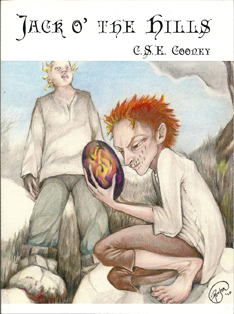 That’s, in a nutshell, what’s hardest about writing. I would sit and write ten hours a day every day if I could. But life gets in the way. When I ran away from Chicago to Rhode Island, I was running away from a happy and healthy social life. And a full time job at a bookstore that I really loved. I just couldn’t handle all that love. Love that big and glowing is an incredible time suck. And I had books to write.
That’s, in a nutshell, what’s hardest about writing. I would sit and write ten hours a day every day if I could. But life gets in the way. When I ran away from Chicago to Rhode Island, I was running away from a happy and healthy social life. And a full time job at a bookstore that I really loved. I just couldn’t handle all that love. Love that big and glowing is an incredible time suck. And I had books to write.
For the first year and a half here, I had no friends. Or very few. And I got a lot done. And then I started doing theater again, and making friends, deepening relationships with local writers — whom I’d only known through the Internet before, or met briefly at cons.
And now, I think I get less done. Though I now have a healthy and glowing and golden social life here as well. I am not as lonely, and I am much happier. It helps that I know very few people in my actual home town.
Right now I have to figure out how not to be so tired at night. Or to accept that two hours of writing a day are better than one blissful ten-hour day every few weeks. I love myself best when I am disciplined and productive. But sometimes all I want to do is lie around and read books instead. Not having Internet (other than through a limited hotspot on my phone ) or television at home does help.
As far as process goes, I’m a pretty PROLIFIC writer. And I type fast enough. But my speed is negated by the interminable amount of drafts I have to do. I overwrite, then I overcut. Then I have to reshape, squeeze, hack, and pay better attention to structure and velocity. Wit. World building. Plausibility. Take the passive out of my protagonists. Big challenges.
Writing used to be easier. The more tools I have, the more stories I have written, the harder the process has become. That might sound silly. I used to laugh when people complained that writing was hard. I don’t know if I’m getting better. It just seems I’m getting painfully slower. But it is still awfully exultant at times.
And I dare not stop now.
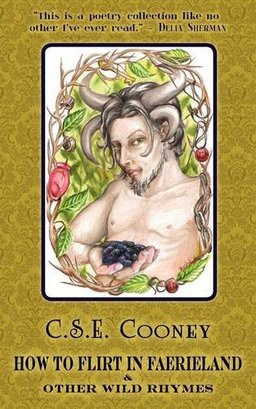 I often wonder if I’m getting better, or if I’m just quicker at figuring out which parts of any given project are more in line with what the rest of the world thinks of as “good writing” and then keeping and/or amplifying those bits. I, too, seem to have slowed, although once at the keyboard, I write quickly. It’s the between times, yes? The between times when one is not officially writing or even thinking directly about a project, but you let the story seep through the rest of the day, like curd through cheesecloth, and the most amazing things, sometimes, result.
I often wonder if I’m getting better, or if I’m just quicker at figuring out which parts of any given project are more in line with what the rest of the world thinks of as “good writing” and then keeping and/or amplifying those bits. I, too, seem to have slowed, although once at the keyboard, I write quickly. It’s the between times, yes? The between times when one is not officially writing or even thinking directly about a project, but you let the story seep through the rest of the day, like curd through cheesecloth, and the most amazing things, sometimes, result.
Now then. What are you reading now? What will you read next?
Howard Andrew Jones is making me read Lord Dunsany.
That nice Mr. Jones is forcing you to read something against your will?
Okay, he’s not making me. He asked nicely. He’s doing this big Re-Read over on his blog, and he thought he’d start with A Dreamer’s Tales. He asked Bill Ward and me to enter into a sort of cyber-discussion with him about the works. Howard and Bill are excellent at thoughtful and incisive literary essays. I am excellent at exclamation points, asterisks, and capital letters. When I mentioned that maybe I wasn’t the best person to be book-discussing with, they teased me and started responding in haiku. They are glorious gentlemen. And now that I have read Lord Dunsany, I’m afraid I’ll have to insist on being called “Tiger of the Gods.” In fact, from now on, everyone can just call me “C. S. E. Tiger of the Gods Cooney.” If you please.
I recently had a hankering to re-read To Kill a Mockingbird. Don’t ask me why. I don’t know why! It’s like this jones. Haven’t touched it since Freshman year of high school.
I have all these books on my bookshelf that I look at lovingly and promise myself I will read one day, and then I end up re-reading Lois McMaster Bujold. And then I hear people talking about reading books to their kids, or out loud to partners, and I get really jealous. Not of reading to or being read aloud to. I get jealous of other people READING BOOKS I LOVE. It makes me want to snatch them from the hands of babies and curl up in a corner and feverishly turn pages. A friend of mine is reading the Harry Potter books to his kids. Now I have to re-read ALL THE HARRY POTTER BOOKS. And believe me, I didn’t intend to do this again any time soon. I’d probably be better served reading, I don’t know, Salman Rushdie.
Haroun and the Sea of Stories has been on my list for a while. So has Ghost Map about the cholera. I got it from the library, but I read nonfiction more slowly than fiction, and then I had to turn it back in. But it was totally engrossing. Maybe emphasis on gross. In the best possible way!
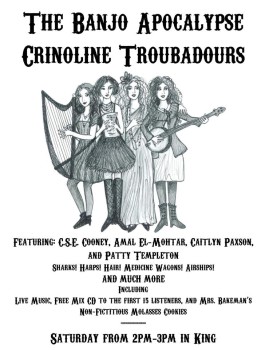 You sing, in crinoline. You take the stage in service of Sarah Ruhl. Does art inform art? Are these where inspiration lies?
You sing, in crinoline. You take the stage in service of Sarah Ruhl. Does art inform art? Are these where inspiration lies?
Doesn’t the word inspiration come from the word for breath? “Dum spiro spero” or something. I used to say that writing was just like breathing to me, but performing live was my reason for breathing. I said that, you know, decades ago, so I was probably just being pretentious again. Writing used to be so easy and effortless, and performing used to fill me with such lightning. Writing is less easy now, less dreamy, more deliberate, more pointed. More rewarding.
And performing again — after a long hiatus — was a new revelation. But as much as I’ve loved my recent entanglings with Shakespeare (and, earlier this year, Sarah Ruhl), I’ve learned that I like performing my own stuff best. It’s like I’m fulfilling some promise I made to the text back when it was just a little baby draft. It comes into its fullness when it’s spoken aloud before an audience. Or recited. Or sung, as in the case of my work with the Banjo Apocalypse Crinoline Troubadours.
My father once wrote in a poem to me, “Explore when you are young / The sacred path from eye to pen to tongue” and I must have taken that more to heart than I realized. From the outer world to the inner dreamscapes of writing to the shared illusion of the stage is all part and parcel of the same journey.
Does art inform art? That’s such a posh question! Probably. Yes. Sure! Everything informs everything. To every action, there’s an equal and opposite et cetera. (SCIENCE SAYS SO!) I know when something pushes my big, red, don’t-push-this-button buttons, I sort of explode into art. Sometimes it’s a pretty explosion, like fireworks. Sometimes it’s more like, um, squirrel meets land mine.
*
And on that explosive note, we must leave off.
*
C.S.E. Cooney is a Rhode Island writer who lives across the street from a Victorian Strolling Park. She is the author of How To Flirt in Faerieland and Other Wild Rhymes and Jack o’ the Hills. “Witch, Beast, Saint” the first erotic fairytale in The Witch’s Garden Series appeared in Strange Horizons in late July 2014, with the second in the series “The Witch in the Almond Tree” available on Amazon as an ebook. Also just released for Kindle is the first novella in her Dark Breakers Trilogy: The Breaker Queen.
With her fellow artists in the Banjo Apocalypse Crinoline Troubadours, Cooney appears at conventions and other venues, singing from their growing collection of “Distant Star Ballads,” dramatizing fiction, and performing such story-poems as “The Sea King’s Second Bride,” for which she won the Rhysling Award in 2011.
Her first short fiction collection Bone Swans is forthcoming with Mythic Delirium in 2015. She is currently seeking representation for her novel Miscellaneous Stones: Assassin. Her Amazon page may be found HERE.
Mark Rigney has published three stories in the Black Gate Online Fiction library: ”The Trade,” “The Find,” and “The Keystone.” Tangent called the tales “Reminiscent of the old sword & sorcery classics… once I started reading, I couldn’t stop. I highly recommend the complete trilogy.” In other work, Rigney is the author of “The Skates,” and its haunted sequels, “Sleeping Bear,” and Check-Out Time. His website is markrigney.net.